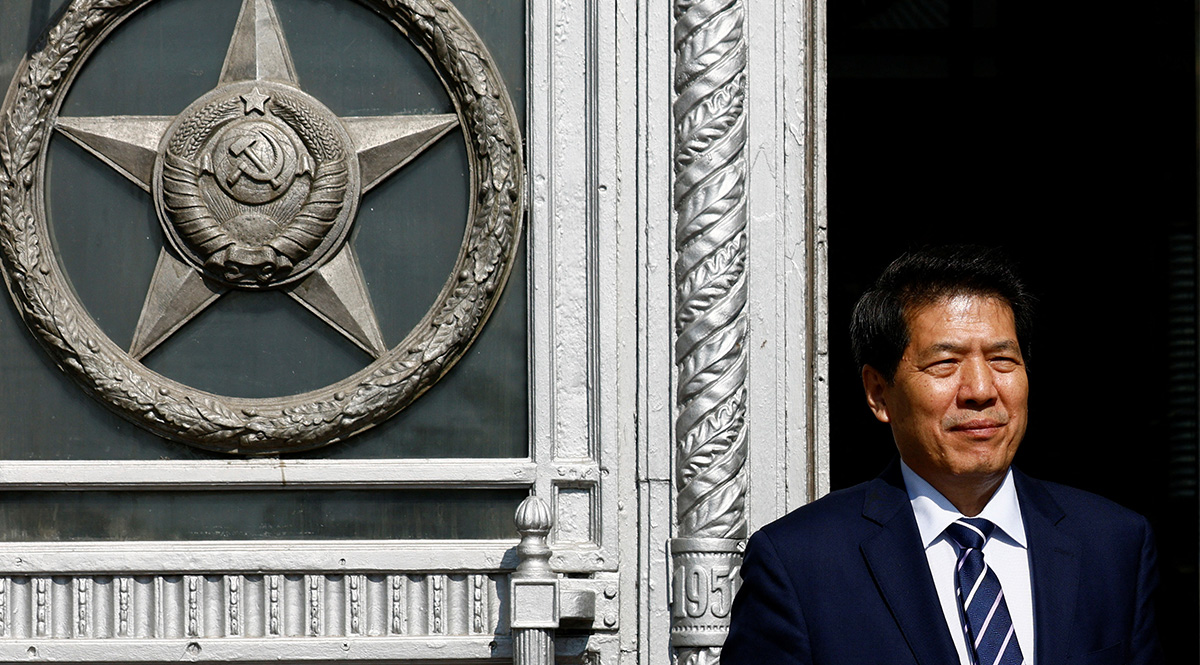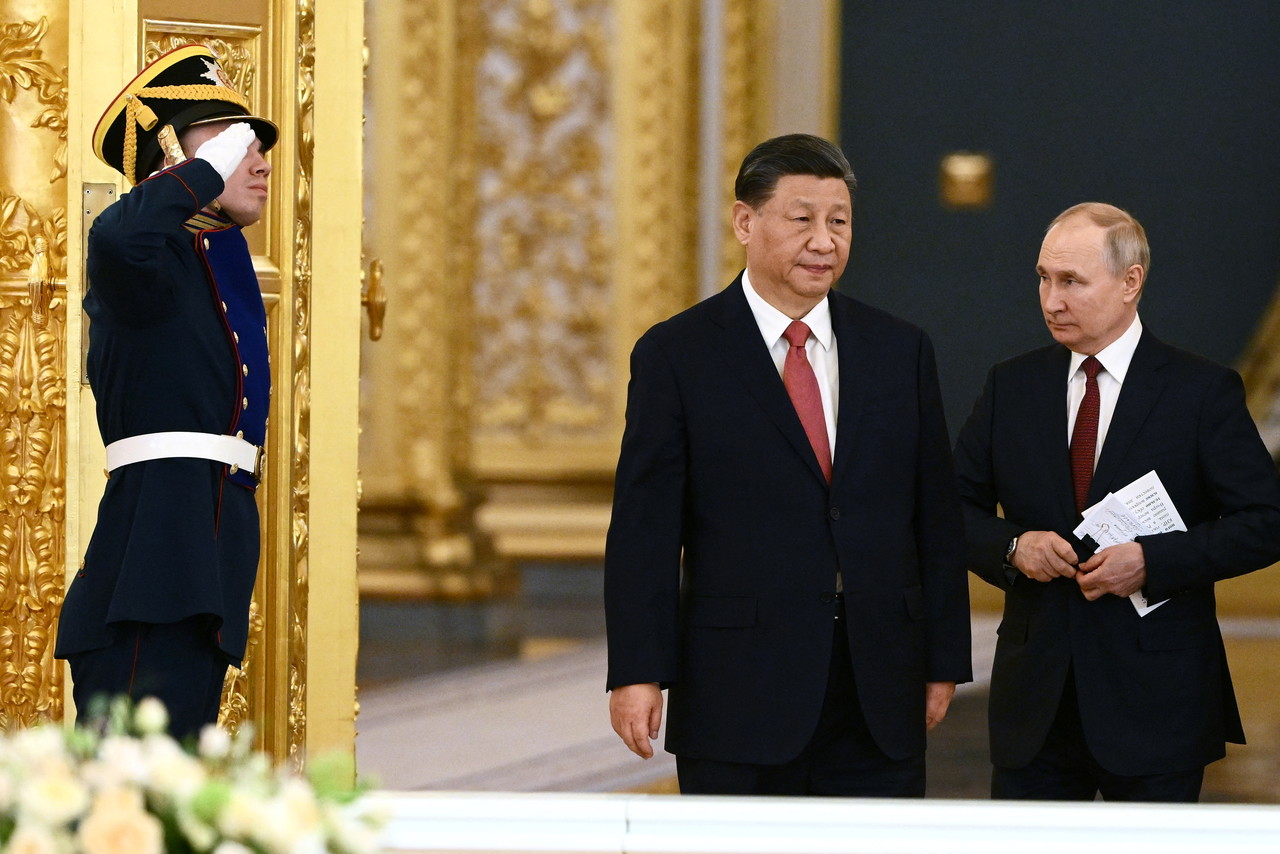Chinese Envoy Visits Europe to Talk about the War in Ukraine
The tour of Europe by Li Hui, the Chinese government’s special envoy for Eurasia, was meant to demonstrate China’s commitment to ending the war in Ukraine. The diplomat indicated China’s readiness to mediate and stressed the need for a peace conference involving Ukraine and Russia. These demands were not supported by the EU institutions, Member States, or Ukraine.
 MAXIM SHEMETOV / Reuters / Forum
MAXIM SHEMETOV / Reuters / Forum
Why did Li come to Europe?
This was the envoy’s second trip to Europe. As he did in 2023, Li visited Russia, Belgium (EU institutions in Brussels), Poland, Ukraine, Germany, and France. The 10-day visit (2-12 March) was intended to reinforce China’s image on the international stage, especially vis-à-vis the Global South, as a state seeking peace and stabilisation of the armed conflict in Ukraine. It was calculated to emphasise China’s subjectivity and objectivity, without emphasising the partnership with Russia. It also was aimed to probe the positions of EU countries, especially France and Germany, towards the start of negotiations involving both sides of the conflict. Li sought to promote China’s participation in the construction of a new European security architecture in line with Russia’s demands.
What were the differences of opinion during the Moscow talks?
China and Russia differ in their approach to possible negotiations on the war in Ukraine. The Russians are not interested in them at present, not least because of the favourable situation on the frontline. However, due to Chinese political and economic support, they could not ignore this initiative, hence the differences in the communiqués following Li’s meeting with the Deputy Foreign Minister of the Russian Federation Mikhail Galuzin. The Russian release stresses that there can be no peace talks without the participation of the Russian Federation and consideration of its security interests and that the demands of “Kiev and the West” cannot be considered a basis for dialogue. It also enigmatically mentions the “friendly atmosphere of the meeting” between Chinese and Russian representatives. China’s statement points to the need for negotiations involving “Russia, Ukraine and other parties”, but notes, unlike the Russian side, the Russian Federation’s appreciation of China’s constructive role.
What did Li discuss in Kyiv?
As in 2023, a briefing was held in Kyiv in which the Ukrainian side was chaired by Andrei Yermak, head of the Ukrainian President’s Office. Representatives of Ukrainian institutions presented Li with the situation on the frontline, the issue of the grain corridor, and the return of prisoners of war from Russia and kidnapped Ukrainian children. They also showed the Chinese delegation the remains of North Korean missiles that were used in attacks on Ukrainian cities. They drew attention to the dangers posed by Russia’s militarisation of the Zaporizhzhia nuclear power plant. Li also held face-to-face meetings with Yermak, as well as Ukraine’s economic and foreign ministers, during which they discussed, among other things, the Ukrainian peace formula. The hosts urged China to participate in the peace conference planned for the summer in Switzerland, but the response from the Chinese side is unknown. China’s MFA communiqué following Li’s visit to Kyiv does not mention the topics of the talks, most likely due to the far-reaching differences of opinion. However, this may also be part of China’s approach not to openly signal its policy, for example in the context of possible participation in the Swiss conference.
How did EU institutions and Member States respond to Li’s visit?
Representatives of the EEAS (including the directors for Asia and the Pacific and for Russia, the Eastern Partnership and Central Asia), as well as diplomats from Poland (deputy minister), Germany (secretary of state), and France (deputy director of the department) strongly rejected Li’s proposals. They also appealed to China—not least because of its role as a permanent member of the UN Security Council—to put pressure on Russia to withdraw its troops from Ukraine, respect its territorial integrity and sovereignty, and refrain from threats to use nuclear weapons. They pointed out that China’s policy towards Russian aggression negatively affects Sino-EU relations, not least because of the export of dual-use products and high-tech from China to Russia. This is why Chinese companies were included in the 13th package of EU sanctions, which Li protested during his visit. In his talks with the EEAS, the Chinese envoy stressed the need to negotiate with Russia, pointing out that the start of talks on Ukraine’s territorial integrity is only possible after a cessation of hostilities, a halt to EU arms deliveries, and respect for Russian security interests.
What is China’s current approach to the war in Ukraine?
The position presented by Li on the war in Ukraine is similar to that of February 2023. The basis of Chinese policy continues to be support for Russia, which reinforces its dependence on China. It is now hoping that, in the face of problems for Ukrainian troops on the frontline and the withholding of aid from the U.S., EU countries, as well as Ukraine, may be more receptive to the offer of mediation as a way of freezing the conflict. This would mean, for example, agreeing to organise an international peace conference with Russia, but without basing it on the Ukrainian peace formula. China is testing the extent to which such a solution could serve to improve EU-China relations and reduce restrictions on Chinese companies, either through sanctions or a process of reducing the EU’s dependence on China. According to the Chinese, convincing EU countries of its point of view is served by the Union’s fear of the possible negative consequences for European security of a Donald Trump victory in this year’s presidential election in the United States.




.jpg)
